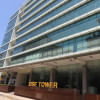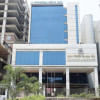Why most stock market policies backfired

The stock market regulator formulated a large number of policies, rules and regulations and passed orders in the last 15 years citing the best interests of investors.
However, most have backfired, leaving the stock market reeling from a crisis of confidence.
Although these changes failed to ensure good governance in the market, Prof Shibli Rubayat-ul Islam and M Khairul Hossain got unwarranted extensions of their tenures at the head of the Bangladesh Securities and Exchange Commission (BSEC).
Analysts pointed out faulty decisions, including the imposition of floor prices, allowing mutual fund tenure extensions and stock dividends as their returns, and allowing companies with poor performance records to make initial public offerings.
The imposition of strict conditions for the valuation of companies in the bookbuilding method and frequent changes to the circuit breaker -- which determines the extent to which the price of a stock can increase and decrease in a day -- were also bad policy decisions, they said.
The Khairul-led commission tried to stop forced sales in 2011 and 2012, which ultimately caused institutional investors to lose interest.
Many of them are still dormant in the market as they are bearing the burden of past decisions.
During the pandemic, the stock market was closed for around two months although banking activities had resumed much earlier, said Mohammad Emran Hasan, managing director and chief executive officer of Investit Asset Management.
"No other stock market in the world was kept shut for such a long time. This was a bad decision from the regulatory end," he said.
After that, floor prices were imposed twice, which proved to be devastating decisions.
"A regulator cannot set share prices. The market faced a huge lack of liquidity in the absence of buyers at set prices," he said.
In 2020, the Khairul-led commission launched floor prices for the first time in the country amidst the pandemic. The two-month suspension of trading activities also hit foreign investors hard, Hasan said.
The Shibli-led commission lifted floor prices but imposed them again in 2022 amidst the Russia-Ukraine war. Floor prices are still in place for six companies, he said.
Regarding the tenure extension of closed-end mutual funds, Hasan said it was one of the major reasons for the havoc in the mutual fund industry.
An investor puts money into a fund with hopes of getting it back with a profit after a stipulated amount of time, but the regulator stopped that, he said.
In 2018, the Khairul-led commission extended the tenures of all closed-end mutual funds by 10 years, hurting investors who had already waited long periods to get their funds back with profit, Hasan said.
"Even a foreign investor, the City of London Investment Management Company, filed a writ petition against the BSEC's decision as such extensions without the approval of unitholders are in violation of the BSEC (Mutual Fund) Rules, 2001," Hasan added.
The Khairul-led commission even allowed asset managers to provide stock dividends or returns on investments in mutual funds, which is uncommon around the world, he said.
Most companies that got approval to go public from the Shibli and Khairul-led commissions were later downgraded due to poor performance, which raises questions over the initial public offer processes, he said.
Once the BSEC had ordered all asset management companies (AMCs) to keep at least 75 percent of their investments in mutual funds, which was understandably a poor directive, said Shekh Mohammad Rashedul Hasan, managing director and CEO of UCB Asset Management.
"A regulator cannot direct AMCs about where to invest. The AMCs are bound to protect investors' funds. However, the BSEC's directive, when stock prices were already inflated, led to losses, impacting investors," he said.
Now, the regulator must provide assurances that they will not frequently change policies. This will bring back investors' confidence in the mutual funds, he added.
The Daily Star tried to contact Shibli and Khairul for comment yesterday, but they did not receive phone calls.

 For all latest news, follow The Daily Star's Google News channel.
For all latest news, follow The Daily Star's Google News channel. 







Comments